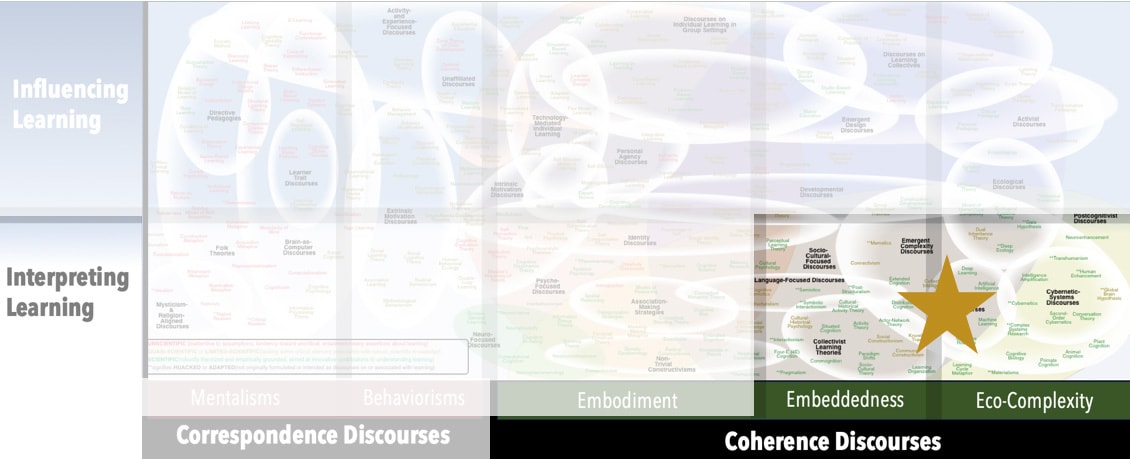Focus
Human developmentPrincipal Metaphors
- Knowledge is …
- Knowing is … being
- Learner is … an individual in interpersonal relationships
- Learning is … developing, progressing
- Teaching is … reorienting perceptions
Originated
1920sSynopsis
Cultural-Historical Psychology brought together psychologists, educationalists, medical specialists, physiologists, and neuroscientists around the shared goal of forming an integrative science for a new theory of consciousness. Cultural-Historical Psychology aimed to account for the inseparability of mind, brain, behavior, and culture, founded on the premise that a one’s development (voluntary attention, logical memory, formation of concepts) progresses inward from one’s relationships with others. Subdiscourses include:- Cultural-Historical Theory of Development (Lev Vygotsky, 1930s) – a metatheory that regards human development as mostly a social process, rooted in the observation that perceived regularities of human mental development both radically differs from that of all other species and can vary dramatically from one cultural group to another
Commentary
The “Circle” group, responsible for Cultural-Historical Psychology, was formed in 1924 and disbanded in 1941 with Germany’s invasion of Russia. Cultural-Historical Psychology thus sits more as an historical artefact than a vibrant site of inquiry. Even so, its grounding holist attitude and its progressive insights are still received as cutting edge across much of educational research and practice.Authors and/or Prominent Influences
Lev Vygotsky Alexander LuriaStatus as a Theory of Learning
Cultural-Historical Psychology is not quite a theory of learning, but developments from this movement were influential in the formulation of Socio-Cultural Theory.Status as a Theory of Teaching
Cultural-Historical Psychology is not a theory of teaching.Status as a Scientific Theory
Cultural-Historical Psychology is more of a movement than a scientific theory, although the concept of a unifying theory of consciousness was studied by an interdisciplinary team.Subdiscourses:
- Cultural-Historical Theory of Development
Map Location

Please cite this article as:
Davis, B., & Francis, K. (2024). “Cultural-Historical Psychology” in Discourses on Learning in Education. https://learningdiscourses.com.
⇦ Back to Map
⇦ Back to List
